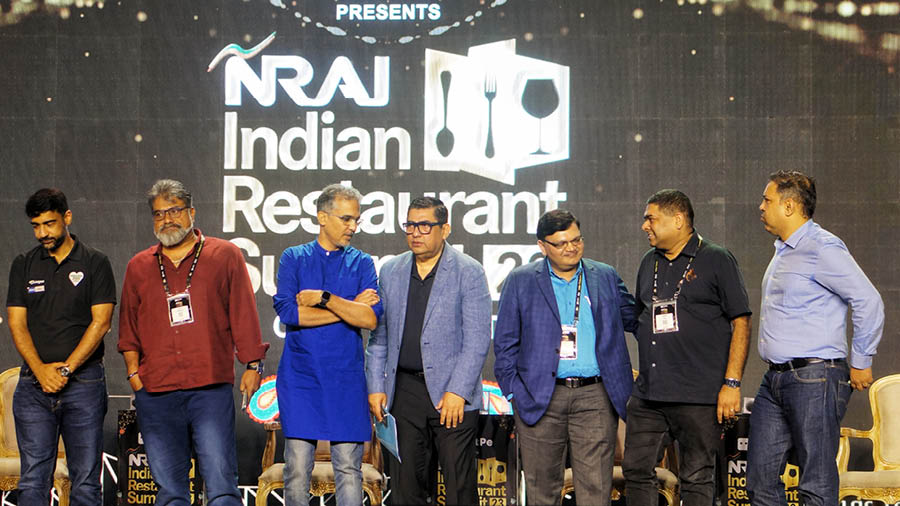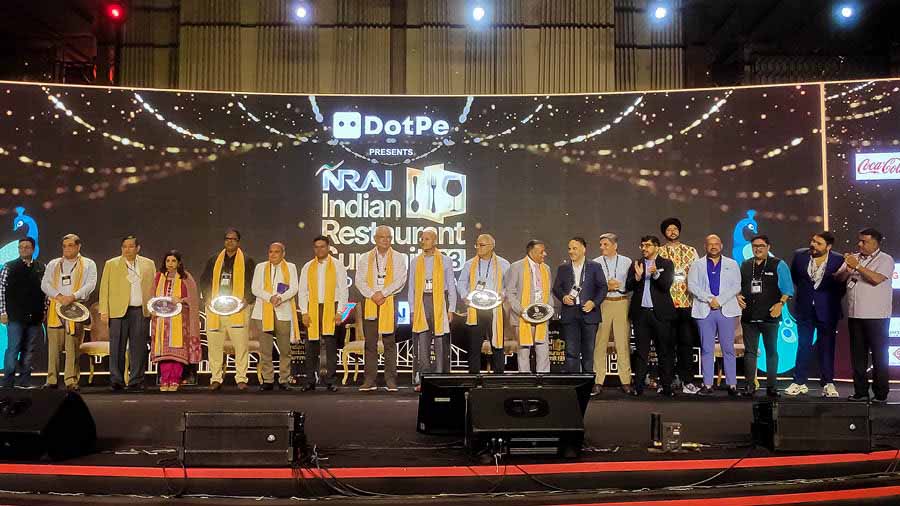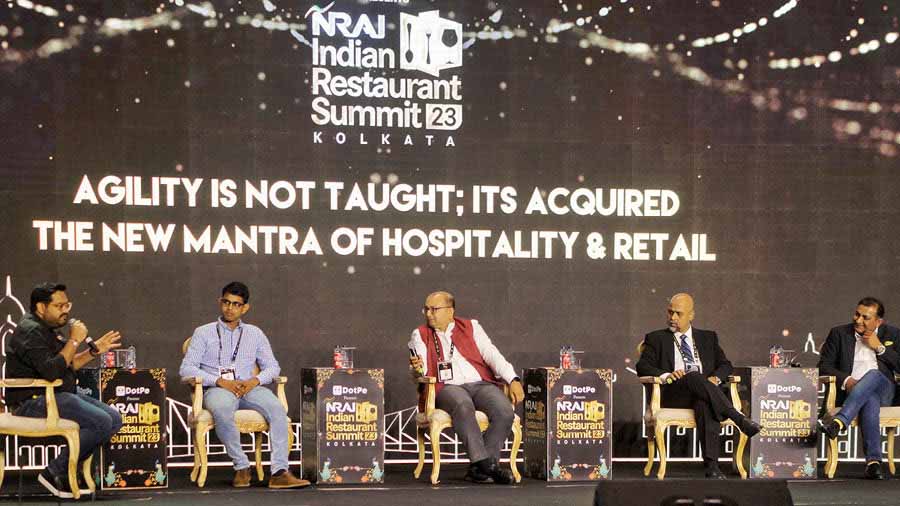The National Restaurant Association of India (NRAI) hosted the Indian Restaurant Summit 2023, Kolkata chapter on September 21 and 22. The summit brought together restaurateurs, F&B giants and people closely connected with the culinary fraternity of Kolkata and other Indian cities.
The two-day summit witnessed an exchange of ideas and thoughts through panel discussions. One such panel discussion was held on Day One on the topic ‘Building a brand for India versus Bharat: How is it different?’
Joining the discussion with moderator Murali Krishnan, co-founder of Wow! Momo were Ankur Jain, founder, Bira 91; Nitin Saluja, co-founder, Chaayos; Anjan Chatterjee, founder, Speciality Restaurants; Kallol Banerjee, co-founder, Rebel Foods; Rohit Kapoor, CEO, Swiggy; Kenneth Serrao, co-founder, OAKS Capital and Sanjay Singal, COO, dairy and beverages, ITC.
Excerpts from the panel discussion:
Building an Indian brand for both local and global consumers
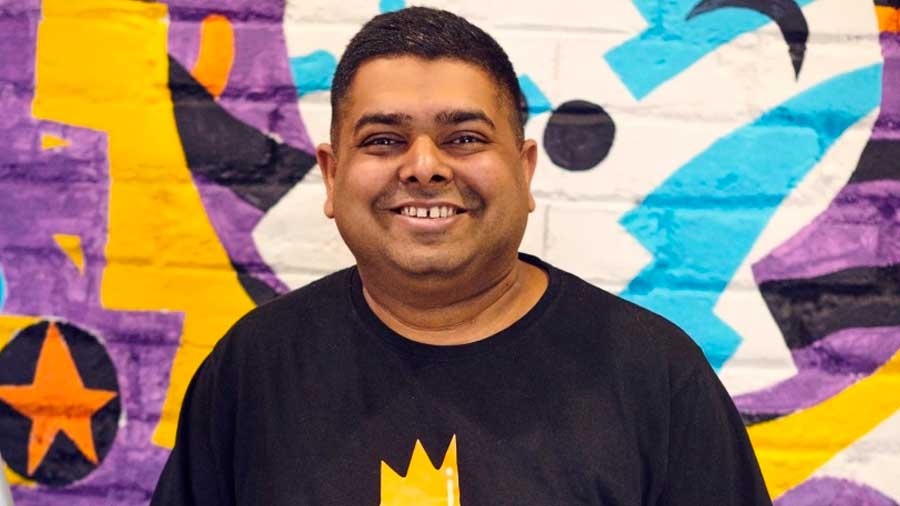
When we built Bira 91, our vision was to see it on a shelf in New York and London, while also being a brand that was well accepted in Kolhapur or Asansol. Everything we do, we keep in mind the diversity of our consumers. We wanted it to be a brand that resonated with the people across age groups, and make them feel good about trying something different. Everyone wants to be known as someone who tries something new. We also found out that the consumer, no matter what age they are, wants to feel younger. This insight, similar across countries, helped contribute to our brand’s success.
– Ankur Jain, co-founder, Bira 91
India and Bharat co-exist within each of us
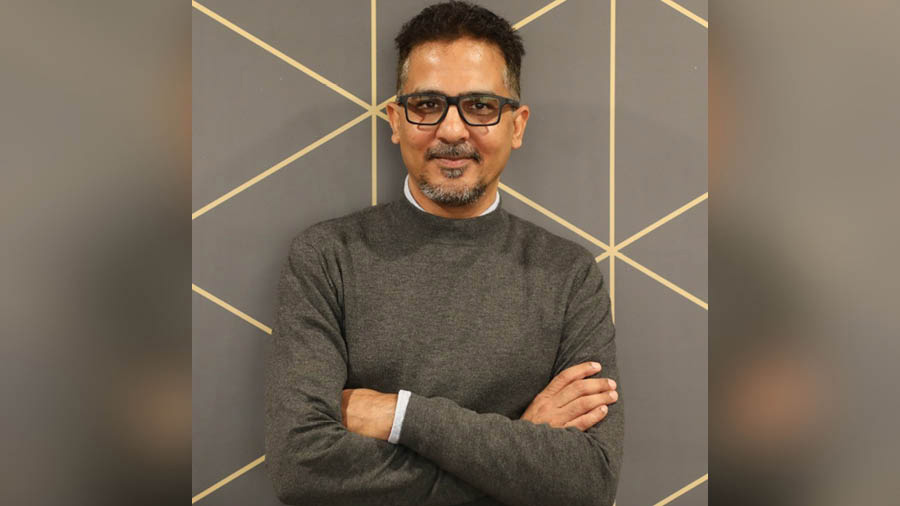
I think we all carry elements of both Bharat and India in our lives. When it comes to food, this duality is seen in the contrast between the modern culture of ordering food and the tradition of home-cooked food. That's what we refer to as bahar ka khana and ghar ka khana. For the longest time, one’s identity was closely tied to the food they prepared at home. But now, the concepts have started to change. Now sometimes we say we'll order something from out and eat it with ghar ka chawal or roti. Additionally, the rise of delivery services also caters to the needs of the situation. For example, during a fast, we might say, “Let’s order something today because we don’t want to put the pressure on the person who cooks.” In these moments, we witness the coexistence of both modern-day India and a traditional Bharat.
— Rohit Kapoor, CEO, Swiggy
Empowering consumers to shape the brand
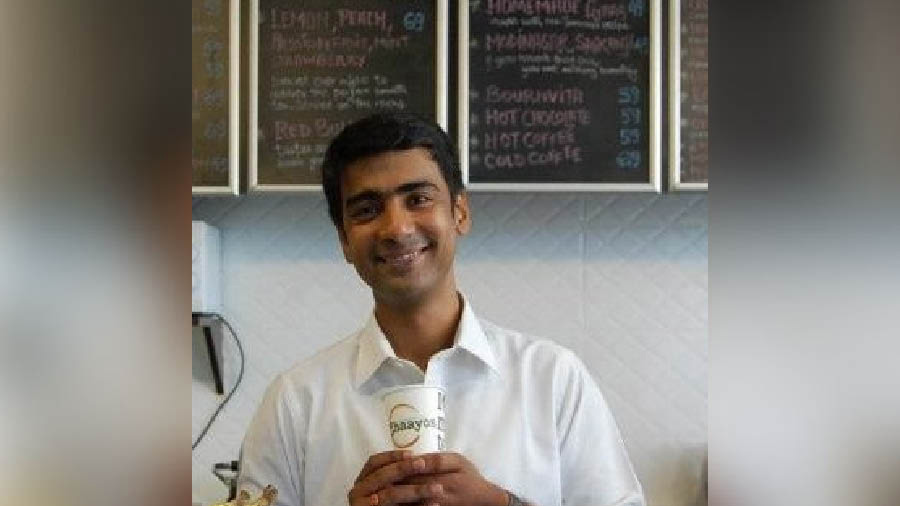
In India, people love experimenting when it comes to their chai. We were surprised to see the many combinations that varied with the demography. We now offer add-ons like tulsi, adrak (ginger), laung (clove), saunf (fennel seeds), and elaichi (cardamom). Indians take their chai seriously and there is no one combination that everyone likes equally. Everyone has their own preferences. So we just left it to the consumers and they made their own chai. That’s the speciality of our brand — it’s all about what the consumers make.
— Nitin Saluja, co-founder, Chaayos
Crafting a niche and ensuring accessibility
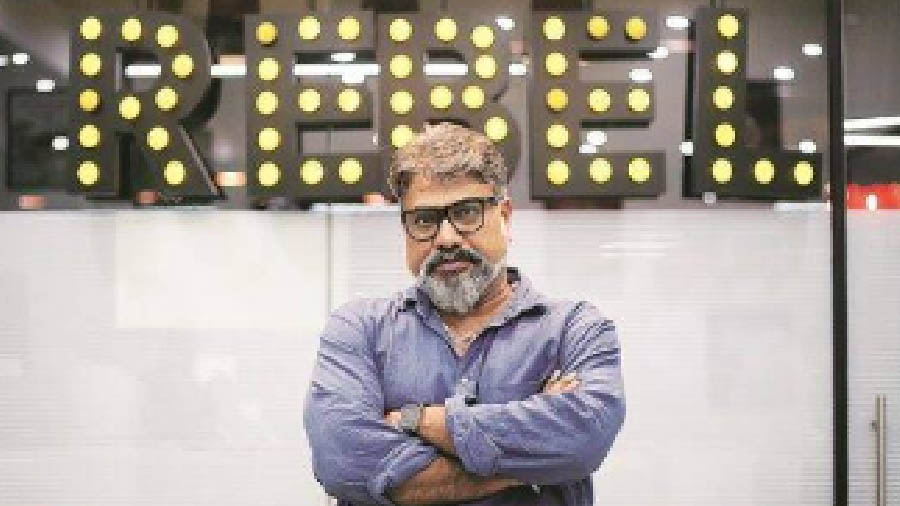
When we talk about India vs Bharat, it sometimes boils down to the accessibility of tech. That has been quite faded out by the concept of a digital India. As a brand-building company, what we need to focus on is identifying a niche and making it accessible to people. For Behrouz Biryani, we could build a brand because there was a biryani in every nook and corner of the country. But we didn’t want to engage in the debate over what makes the best biryani. Instead, we created a backstory and made it clear to our audience that Behrouz Biryani is distinct and incomparable to a Kolkata biryani or any other biryani.
— Kallol Banerjee, co-founder, Rebel Foods
Operating from the centre of the plate
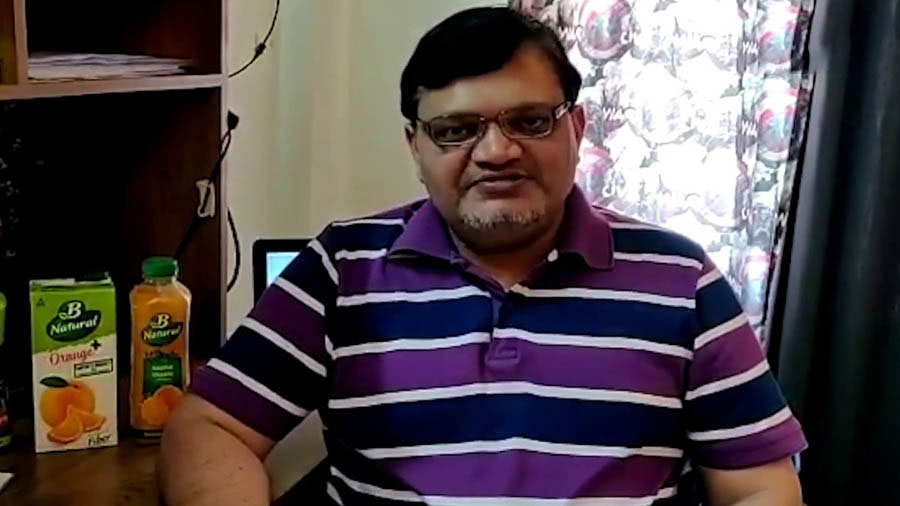
During my seven years with ITC, a prominent FMCG brand, particularly in the dairy and beverages division, I’ve come to understand that for a brand to flourish, it must operate from the centre of the plate. In other words, at the core of what consumers really need. Our atta and milk became popular in India because it catered to daily needs and met the staple of the households. Another aspect that matters in India’s distribution is manufacturing products within the state. Freshness is a big deal in India. Even if you provide a seven-month shelf life, the consumer will reject a product that’s two months old. That’s the consumer trend in our country.
— Sanjay Singal, COO, dairy and beverages, ITC
The changing aspirations of new India
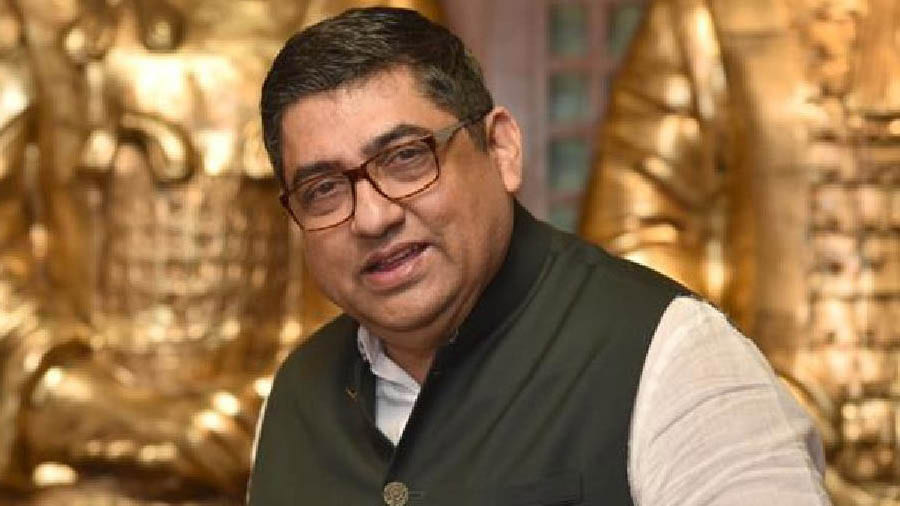
India, to my understanding, is what people living in metro cities perceive it to be.The younger generation has a different perspective, marked by fast changing aspirations. They are more aware and educated, thanks to the Internet. Coming to my brand Speciality Restaurants, when we established Mainland China, people came asking for momos; they expected familiar items like roti and papad in other parts of the city. They were not fully aware of what the restaurant was offering but now everyone has a smartphone, and they are constantly gaining knowledge. So the new India knows what it wants. We started Haka because we understood people wanted something budget-friendly yet reminiscent of Mainland China. It has rapidly grown into a successful chain. Today, consumers in the new India are highly discerning and vocal about their demands.
— Anjan Chatterjee, founder, Speciality Restaurants
India or Bharat, entrepreneurial vision matters
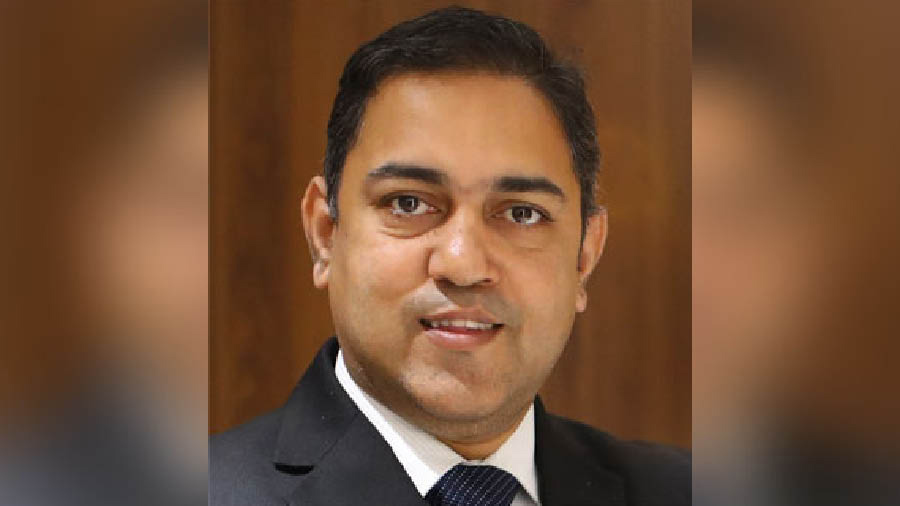
Although we are an investor company, for over a decade, a significant portion of our deals (30%) and capital (50%) has been directed towards the restaurant industry, not food tech, but actual restaurants. Our experience in this sector has been quite positive. I have lived in small towns where people made a living through running shops, hotels and restaurants. Many times, restaurants and hotels flourished and sometimes perished. But as an investor, what I feel is — in India if you have to succeed, you have to understand your customer. What they demand, what they like and don’t like. And that vision lies with the entrepreneurs who drive these ventures.
— Kenneth Serrao, co-founder, OAKS Capital
